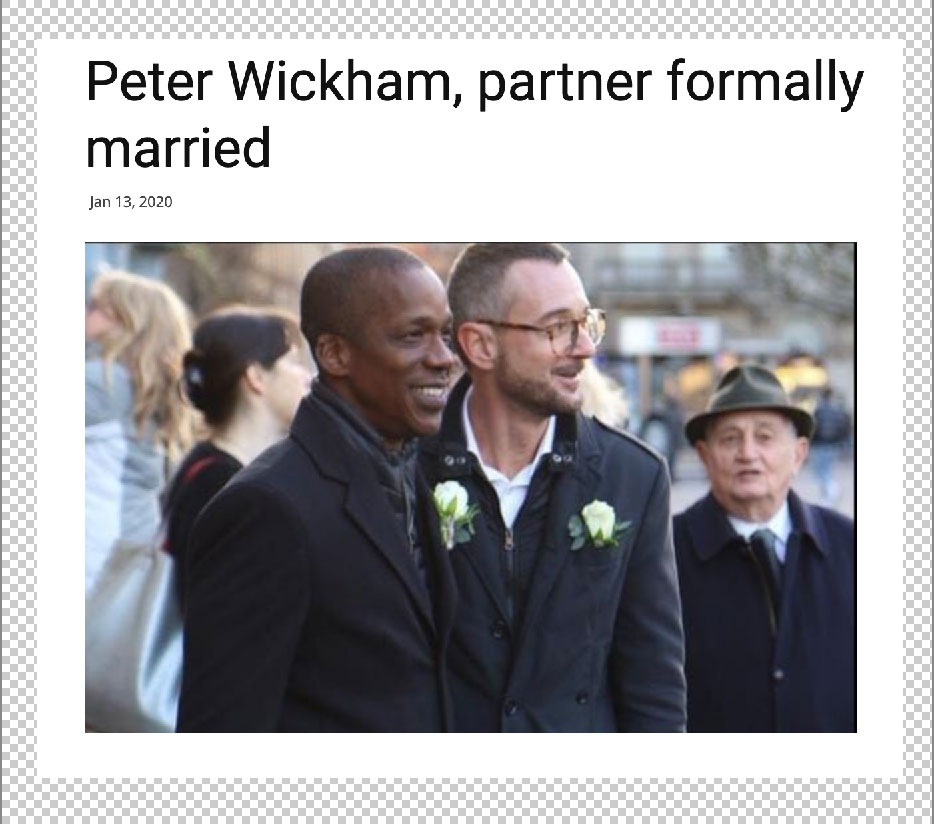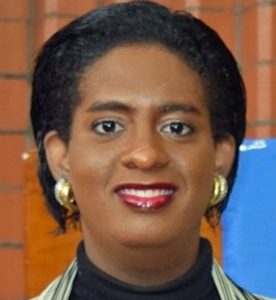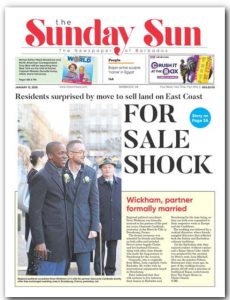Same-sex marriage: International acceptance vs. Caribbean repression
Maurice Tomlinson of Jamaica and Canada has been involved in…

By Maurice Tomlinson
On Sunday, Jan. 12, the popular Barbadian newspaper the Nation published a favourable front-page story about the same-sex wedding of the country’s celebrated journalist and regional political consultant, Peter Wickham.
The wedding took place in Strasbourg, France. The couple intend to split their time between Peter’s home in Barbados and his Italian husband’s residence in Strasbourg. This international marital arrangement reflects the increasingly globalized nature of work and family life.

Importantly though, same-sex intimacy is illegal in Barbados and gay sex carries a possible sentence of life imprisonment, the worst in the Western Hemisphere.
The government of Barbados has not responded to a petition before the Inter-American Commission on Human Rights challenging this archaic British colonially imposed statute (“Silence in court” – Barbados Today). The petition was filed by local trans activist Alexa Hoffmann and two other LGBT citizens whose identities were suppressed because of fear for their lives. The Canadian HIV/AIDS Legal Network, the University of Toronto International Human Rights Program, Lawyers Without Borders and other international groups supported the case because of the difficulty identifying local counsel to work on this matter because of the potential backlash.
Barbados also recognizes the jurisdiction of the Inter-American Court of Human Rights and so is bound by the Court’s 2018 Advisory Opinion, which declared that same-sex marriage is a family right that is protected under the American Convention on Human Rights. My own country of Jamaica is a state party to the same Convention, along with Dominica and Grenada. Together these countries represent a significant portion of the population in the Caribbean Community (CARICOM).

Theoretically, if Peter Wickham’s marriage was recognized in his home country of Barbados and the couple then sought to relocate to another CARICOM nation for work -– including the political polling for which Peter is famous — their family would have to be recognized in the new host country, because of the regional Right of Establishment. This would include Jamaica, where same-sex unions are constitutionally banned by S. 18 of the Charter of Fundamental Rights and Freedoms.
As my own challenge to this odious ban wends its way through the Inter-American Human Rights system, the Jamaican government missed the deadline to respond months ago and has instead gone silent. In law, such silence can only be taken as the government’s recognition that the ban is indefensible.
Further, it runs afoul of our CARICOM treaty obligations. It is time to end it before we face stiff fines, like Barbados did for its treaty-violating treatment of Jamaican Shanique Myrie.
The issue of same-sex marriage is therefore very topical in Jamaica and the wider Caribbean and yet, when Montego Bay Pride tried to hold a public forum on the issue in October 2019 the city’s mayor banned the group on the ground that their discussion would violate the “sacredness” of the taxpayer-funded Montego Bay Cultural Centre. Such political short-sightedness is inexcusable when same-sex marriage is clearly on our doorsteps.
Our major trading partners of the US, Canada and the UK all have equal marriage and these countries account for the bulk of visitors to our critical tourism product. Same-sex marriage does not only concern local and regional partners, but is also of vital importance to our guests. We ignore addressing the issue at our peril.





Get these archaic laws off the books. Live and let live. If you don’t like homosexuality then don’t be gay. However, you can stop others from living their life fully and openly.